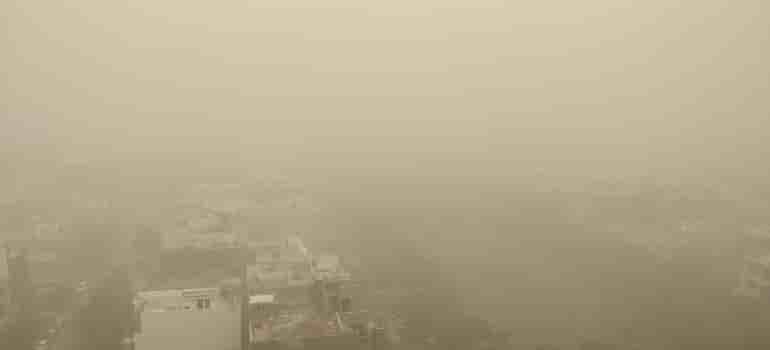Thick smog blankets city, residents urged to stay indoors
The air quality in Delhi turned ‘hazardous’ on Thursday, with many parts of the city recording an Air Quality Index (AQI) above 500. The thick smog that blanketed the city made even buildings across the road barely visible.
The deteriorating air quality has been attributed to a surge in farm fires and unfavorable weather conditions. Scientists have cautioned about an anticipated rise in pollution levels in the Delhi-NCR region over the next two weeks.
Health experts are concerned about the potential increase in asthma and respiratory issues, particularly among children and the elderly.
In response to the worsening air quality, the Delhi government has imposed a number of emergency measures. These include:
• Ban on construction work in areas recording an AQI above 400 for five consecutive days
• Launching of the “Red Light On Gaadi Off” campaign to curb vehicular pollution
• Hiring of 1,000 private CNG buses to strengthen public transport and reduce vehicular pollution
The Delhi government has also urged the neighboring states of Punjab and Haryana to take steps to reduce farm fires. The Punjab government is aiming to reduce farm fires by 50 per cent this winter season and eliminate stubble burning in six districts. The Haryana government is also aiming to near eliminate farm fires this year.
The Indian Institute of Tropical Meteorology (IITM) in Pune has developed a numerical model-based system that estimates the contribution of different sources to Delhi’s air pollution. According to the IITM model, vehicular emissions (11 per cent to 16 per cent) and stubble burning (seven per cent to 16 per cent) currently stand as the two major contributors to the city’s air quality.
The Delhi government has appealed to the public to cooperate with the measures being taken to reduce air pollution. Citizens have been advised to avoid outdoor activities as much as possible, particularly during the morning and evening hours. They have also been advised to use public transport or carpool whenever possible.


